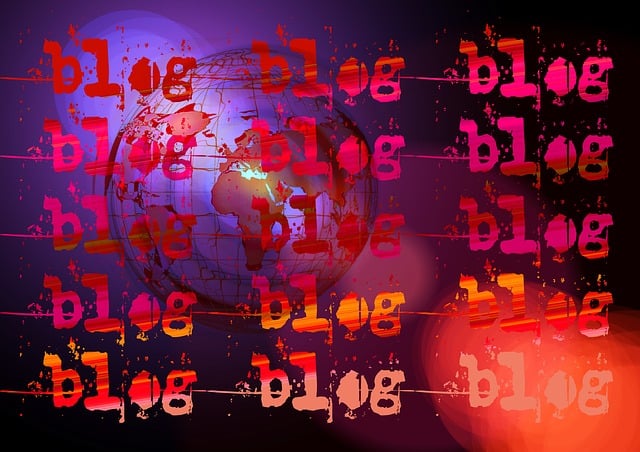Translation services for UK Public Health Reports are critical in a global context, where precise and culturally sensitive translations can significantly impact health policy and public health interventions. These translations must transcend literal meanings to accurately convey the nuances of medical terminology, cultural expressions, and social customs relevant to each community. The process requires specialized translators with expertise in both languages and an understanding of the public health contexts within which these reports operate. Employing advanced translation technology alongside human expertise, along with a robust quality assurance process, ensures that the translated reports are technically accurate, culturally sensitive, and actionable for UK healthcare professionals and policymakers. This approach not only improves the accessibility of public health information but also fosters international collaboration on health issues, thereby enhancing global decision-making and outcomes in public health.
navigating the complexities of global health, the translation of public health reports into the UK context is a critical task. This article delves into the essential aspects of ensuring that health data communicates effectively across languages and cultures. We will explore the necessity for accurate translations, the role they play in shaping policy and practice, and the inherent challenges in this process. Key considerations for effective translation of public health documents will be examined, alongside an evaluation of current translation services for UK Public Health Reports. The cultural nuances and sensitivity required in this delicate field are paramount, as highlighted through case studies that illustrate both successes and missteps. Strategies to enhance the translation process are presented, aiming to uphold the integrity and utility of public health information within the UK’s diverse societal tapestry.
- Understanding the Necessity of Accurate Translation for UK Public Health Reports
- The Role of Public Health Reports in Informing Policy and Practice
- Challenges in Translating Public Health Data Across Languages and Cultures
- Key Considerations for Effective Translation of Public Health Documents
- Evaluating the Quality of Current Translation Services for UK Public Health
- The Importance of Cultural Sensitivity in Translation for Public Health Contexts
- Case Studies: Successes and Failures in Translating Public Health Reports
- Strategies for Improving the Translation Process of UK Public Health Reports
Understanding the Necessity of Accurate Translation for UK Public Health Reports

Accurate translation of public health reports is paramount in the globalized context, especially for the UK, where a precise understanding of health issues can directly influence policy decisions and public health interventions. The necessity of employing top-tier translation services for UK Public Health Reports cannot be overstated, given the diverse linguistic landscape within the UK and its interactions with international health bodies. Effective communication across languages is critical in this sector, as it ensures that data, research findings, and strategic plans are not only accurately conveyed but also retain their original context and nuances. The translation process must go beyond mere word-for-word conversion; it requires a deep understanding of both the source and target cultures, medical terminologies, and public health policies to achieve a translation that is both scientifically accurate and culturally relevant for UK audiences. This is essential for informing healthcare professionals, guiding patient care, and formulating effective public health strategies that address the unique needs of the UK population, thereby enhancing the overall efficacy of public health initiatives.
The Role of Public Health Reports in Informing Policy and Practice

Public health reports serve as critical documents that inform both policy and practice, ensuring that healthcare interventions are evidence-based and tailored to the population’s needs. In the context of the UK, where public health strategies must align with the country’s unique healthcare system and demographic profile, the translation of these reports from their source language is not merely a matter of linguistic transfer but an intricate process that involves cultural adaptation and contextualisation. Translation services for UK Public Health Reports are instrumental in this process, bridging the gap between global health insights and local policy development. These services ensure that the nuances and specificities within public health data, research findings, and recommendations are accurately conveyed and effectively integrated into UK health policies and practices. This adaptation is essential to maintain the integrity of the information and to enable policymakers and healthcare professionals in the UK to make informed decisions that reflect both international best practices and local context considerations. The quality and precision of these translations are paramount, as they directly impact the public health outcomes and the well-being of individuals across the UK. Consequently, the role of translation services in this domain is indispensable, offering a conduit for global knowledge exchange that is both timely and relevant to the UK’s public health landscape.
Challenges in Translating Public Health Data Across Languages and Cultures

The translation of public health data is a complex task that requires not just linguistic accuracy but also cultural sensitivity and an understanding of the nuances in healthcare contexts. When translating UK Public Health Reports for use in different language environments, translation services must navigate barriers that extend beyond mere word-for-word conversion. Language inherently carries with it cultural references, idiomatic expressions, and social constructs that may not have direct equivalents elsewhere. This can lead to misinterpretations or loss of critical information if not handled deftly. For instance, health terminology, treatment protocols, and public health strategies are often deeply rooted in the healthcare system of the country of origin. Therefore, translation services for UK Public Health Reports must be equipped with specialized knowledge to accurately convey the intended meaning without distortion or oversimplification that could compromise the integrity of the data.
Furthermore, the process of localizing these reports is essential to ensure that they resonate with the target audience and are actionable within their own healthcare systems. This involves not only translating the text but also adapting it to be culturally relevant and appropriate for the intended readers. The implications of mistranslation in public health can be significant, potentially leading to misinformed policies or interventions that do not address the unique needs of a population. As such, translation services for UK Public Health Reports must be meticulous and considerate of the multifaceted nature of language and culture to ensure that global health initiatives are effective and informed by the best available data.
Key Considerations for Effective Translation of Public Health Documents

When translating public health reports for the UK context, it is imperative to account for linguistic nuances and cultural differences that can impact the effectiveness of communication. High-quality translation services play a pivotal role in ensuring that public health reports are accurately conveyed to a UK audience. These services must go beyond mere word-for-word translation; they must incorporate an understanding of the local healthcare system, regulatory frameworks, and idiomatic expressions unique to the British Isles. This includes not only translating medical terminology but also adapting content to align with the UK’s clinical guidelines, legal standards, and ethical considerations.
Moreover, the translation process should be guided by a team proficient in both the source and target languages, as well as familiar with the subject matter. This expertise ensures that the translated reports reflect an appropriate level of technical detail while being accessible to healthcare professionals and policymakers within the UK. Utilizing specialized translation services for UK Public Health Reports not only facilitates a smoother exchange of critical health information but also supports evidence-based decision-making processes that can lead to improved public health outcomes in the UK.
Evaluating the Quality of Current Translation Services for UK Public Health

When it comes to public health reports, accuracy and clarity are paramount, given that they inform policy decisions, shape healthcare strategies, and ultimately influence the well-being of the population. The translation of such critical documents from their original language into English for use in the UK necessitates high-quality translation services for UK Public Health Reports. These translations must not only convey the factual content accurately but also consider cultural nuances and idiomatic expressions that could alter the meaning or effectiveness of the report. The quality of these translations is a reflection of the UK’s commitment to international collaboration in public health and its ability to integrate global research into local contexts.
Evaluating the efficacy of current translation services for UK Public Health Reports involves assessing several key factors. Firstly, the expertise of the translators in both the source and target languages is crucial, as is their specialized knowledge in public health. Additionally, the use of advanced technology and translation memory systems can enhance consistency and accuracy across different reports. Furthermore, the integration of peer review processes within translation workflows ensures that all translated content meets the high standards required by UK public health bodies. This rigorous evaluation process aims to guarantee that translations are not only technically correct but also meaningful and actionable for UK healthcare professionals and policymakers.
The Importance of Cultural Sensitivity in Translation for Public Health Contexts

When translating public health reports for the UK context, cultural sensitivity emerges as a paramount concern. The accuracy and appropriateness of translation services for UK Public Health Reports are critical, given the sensitive nature of health information and the diverse populations within the UK. Translators must possess an in-depth understanding of both the source and target cultures to ensure that nuances and cultural references are accurately conveyed. This is essential to maintain the integrity of the original message and to prevent misunderstandings or misinterpretations that could lead to incorrect health decisions or behaviours.
Moreover, translators working on UK Public Health Reports must be adept at navigating the complexities of language and cultural norms. They should be proficient in medical terminology and possess a keen awareness of cultural nuances, including idiomatic expressions and social customs that may not have direct equivalents in English or other languages spoken within the UK. This cultural adaptability is crucial for effective communication, ensuring that public health information is both accessible and relevant to diverse communities, thereby enhancing its uptake and effectiveness in promoting health and well-being across all sectors of society.
Case Studies: Successes and Failures in Translating Public Health Reports

The translation of public health reports from one context to another, particularly into UK usage, presents a unique set of challenges that can significantly impact the efficacy of public health interventions. Successes in this domain often hinge on the adept use of specialized translation services for UK Public Health Reports. For instance, when research from a multinational study is to be applied within the UK, effective translation involves not just linguistic accuracy but also cultural and contextual relevance. A case in point is the successful adaptation of guidelines on obesity management, which were initially developed in the US but effectively translated and tailored for the UK population. This process necessitated a deep understanding of both the source and target cultures, as well as the health care systems involved. On the flip side, failures in translation can arise from a mismatch between the source material’s context and the realities of the UK’s public health landscape. An example of such a failure is the translation of a mental health intervention program from Scandinavia to the UK, which overlooked key differences in healthcare provision and patient demographics, leading to suboptimal outcomes. These instances underscore the importance of a careful and nuanced approach when adapting public health reports for use within the UK, ensuring that translation services for UK Public Health Reports are not only accurate but also contextually appropriate.
Strategies for Improving the Translation Process of UK Public Health Reports

To enhance the translation process of UK Public Health Reports, it is imperative to employ a multifaceted approach that encompasses both technological and human-centric strategies. Firstly, leveraging advanced translation software with machine learning capabilities can streamline the initial translation phase. These systems should be trained on public health terminology specific to the UK context to ensure accuracy and relevance. Secondly, incorporating a team of expert translators who are proficient in both the source and target languages, as well as knowledgeable about the nuances of public health discourse, is crucial. This hybrid model combines the efficiency of AI with the finesse of human expertise, mitigating potential misunderstandings and cultural misinterpretations that could arise from machine-only translations.
Moreover, establishing a robust quality assurance process is vital to maintain the integrity of the reports post-translation. This involves having subject matter experts review the content for technical accuracy and cultural appropriateness. Additionally, creating a dynamic glossary tailored to public health terminology can aid in maintaining consistency across translations. By integrating these strategies, UK Public Health Reports can be effectively translated into other languages, ensuring that their vital information is accessible and comprehensible to a global audience. This not only facilitates international collaboration but also supports informed decision-making on public health matters worldwide.
In conclusion, the translation of UK public health reports into other languages is a multifaceted process that demands precision and cultural nuance. The effectiveness of such translations can significantly influence policy decisions and public health outcomes. It is evident from the discussions on the challenges, current practices, and case studies presented in this article that while there have been successes, there remains room for improvement in translation services for UK Public Health Reports. Embracing strategies that account for linguistic diversity and cultural contexts is crucial for ensuring that public health information is accurately conveyed and actionably utilized globally. By enhancing the quality of translations, these reports can better inform international policy and practice, leading to more effective and equitable public health responses worldwide.
